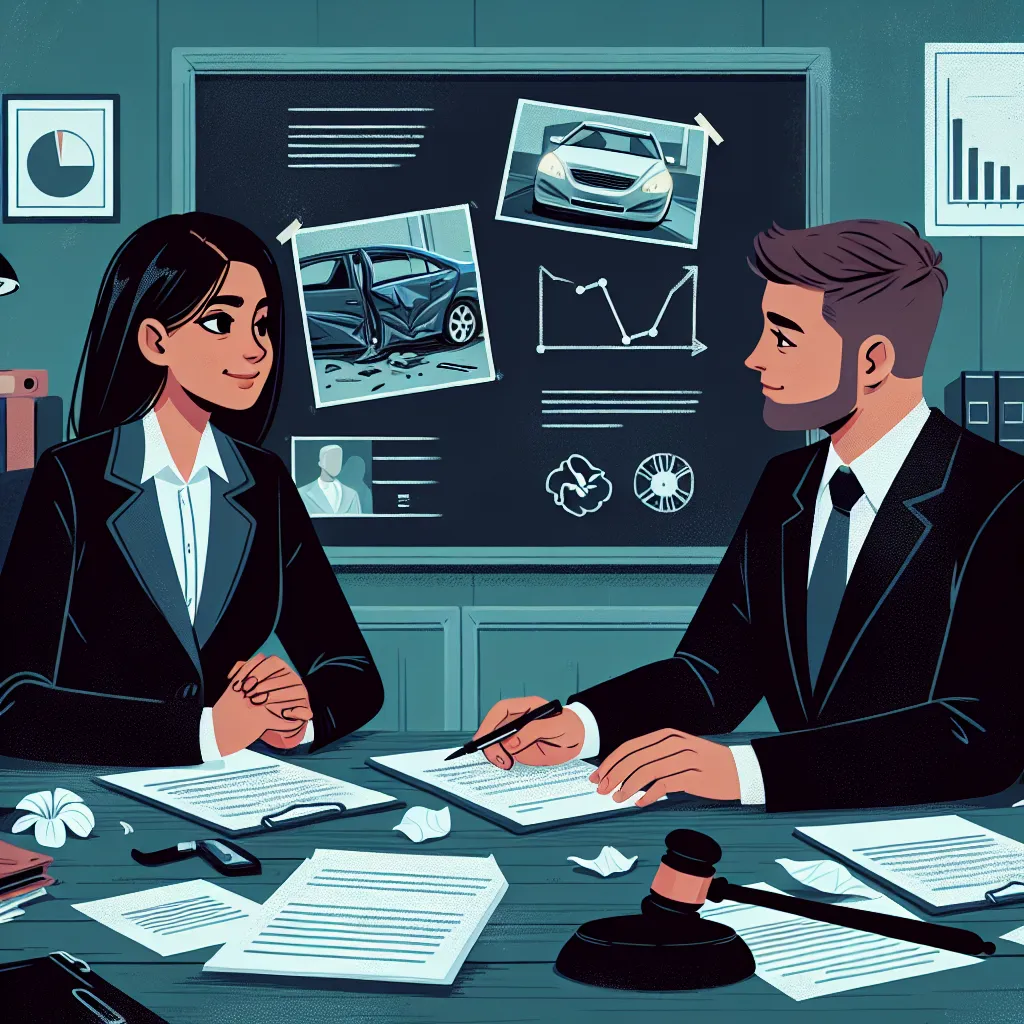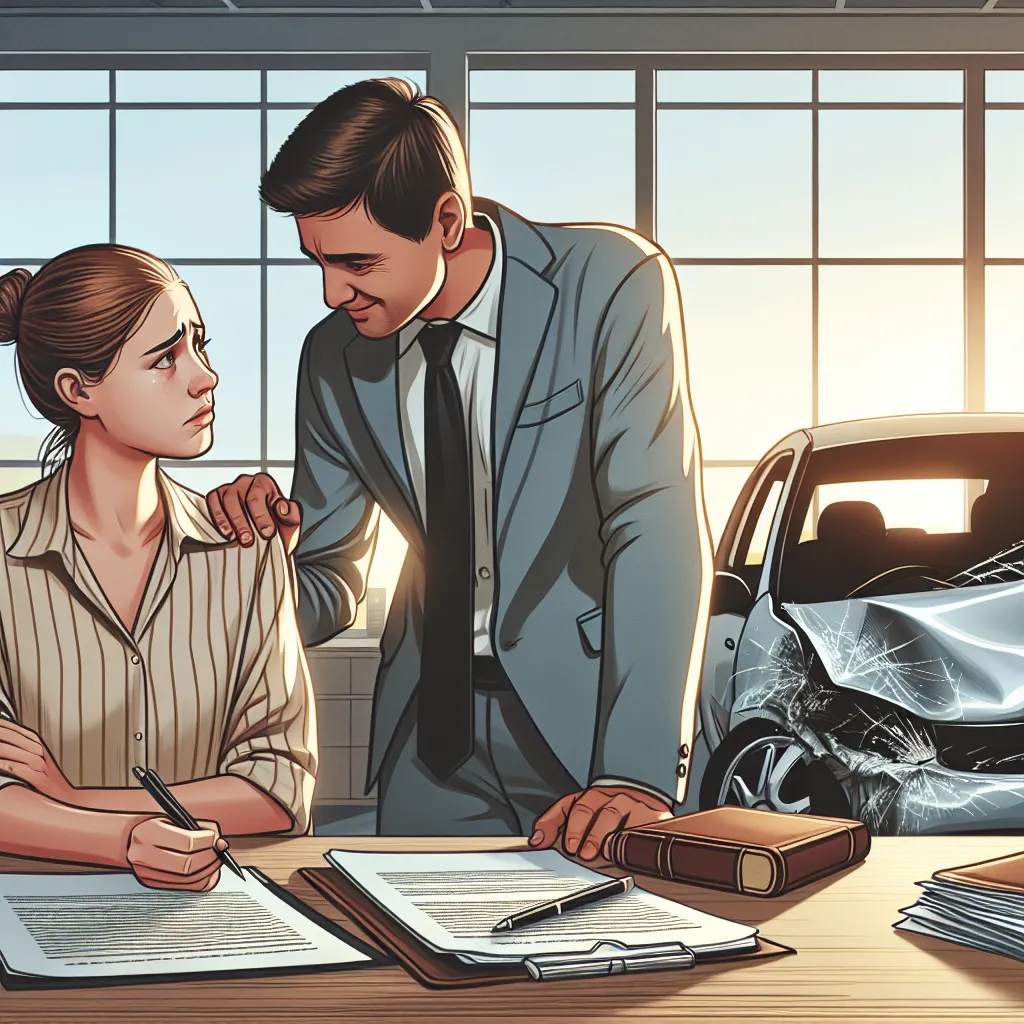Car injury attorney is a term we hear only when life throws us a curveball nobody wants. Suddenly, you’re dealing with aches, endless paperwork, and insurance calls that feel like a second job. Most people think they can handle it alone—until they realize the system isn’t built for them. The truth? Having the right car injury attorney changes the entire recovery game, even if you feel “fine” after a crash.
What Is a Car Injury Attorney?
A car injury attorney is a lawyer who helps people after they’ve been hurt in car accidents. Their job is to figure out who’s at fault, handle insurance claims, and, if needed, represent you in court. Why does this matter? Because the stakes are high—medical bills, lost income, and fair compensation often hang in the balance.
Why Not Just Handle It Yourself?
Dealing with accident fallout alone is like trying to fix your own transmission with a butter knife. You might get somewhere, but not where you want to be. Insurance companies are trained to minimize payouts, and the legal system is full of pitfalls for regular folks. A car injury attorney levels the playing field, so you don’t get steamrolled.
Key Benefits of Hiring a Car Injury Attorney
Let’s break down what a car injury attorney actually brings to the table:
- Expertise with Injury Law: They know the rules, the loopholes, and the deadlines.
- Insurance Negotiation: They talk tough with insurers, who often lowball unrepresented people.
- Evidence Gathering: From police reports to medical records, they collect what matters.
- Valuing Your Claim: They understand the true value of injuries, pain, and lost wages.
- Peace of Mind: You focus on getting better; they handle the headaches.
Are There Downsides?
Of course, nothing’s perfect. Here are a few drawbacks:
- Attorney Fees: Most work on contingency, but you’ll share a portion of your settlement.
- Time: Legal cases can drag on, especially if they go to trial.
- No Guarantee: Winning isn’t automatic; every case is unique.
Quick Comparison Table
| Factor | Handling Alone | With Attorney |
|---|---|---|
| Legal Knowledge | Low | High |
| Stress Level | High | Lower |
| Settlement Amount | Often less | Often more |
| Upfront Cost | None | Usually none |
| Time Investment | High | Moderate |
Real-World Examples: When a Car Injury Attorney Made the Difference
Example 1: The Underestimated Whiplash
A woman in her 40s was rear-ended at a stoplight. She felt fine at first, but days later, neck pain kept her home from work. The insurance company offered $1,500. Her car injury attorney gathered medical evaluations, proved the injury’s impact, and negotiated a $28,000 settlement.
Example 2: The Rideshare Tangle
A rideshare passenger was injured when another car ran a red light. The insurance companies argued about who should pay. With a car injury attorney, the passenger not only got his medical bills covered but also compensation for pain and time lost from work.
Example 3: The “Minor” Fender Bender
A young dad was sideswiped in a parking lot. The at-fault driver’s insurer blamed him for “not paying attention.” Video footage found by his car injury attorney proved otherwise, reversing fault and unlocking full coverage for his injuries and car repairs.
How to Choose the Right Car Injury Attorney
Not all lawyers are created equal, and picking the right one can feel overwhelming. Here’s how to make a smart choice:
1. Specialization Matters
Look for someone who regularly handles auto injury cases, not just general practice.
2. Track Record
Ask about their history with cases like yours. Don’t be shy—it’s your future.
3. Communication Style
You want someone who explains things in plain English, not legalese. If they sound like a robot, keep looking.
4. Contingency Fees
Most car injury attorneys work on a “no win, no fee” basis. Clarify the percentage and any extra costs upfront.
5. Personal Connection
You’ll be working closely for months, maybe years. If you don’t trust or like them, move on.
Attorney Evaluation Checklist
| Criteria | Importance | What to Ask |
|---|---|---|
| Car Accident Focus | High | “How many cases like mine?” |
| Success Rate | High | “What were the outcomes?” |
| Communication | Medium | “How will we stay in touch?” |
| Fee Structure | High | “What’s your contingency?” |
| Reviews/References | Medium | “Can I talk to past clients?” |
What Does a Car Injury Attorney Actually Do?
A day in the life of a car injury attorney is more than courtroom drama. Here’s a timeline:
Step 1: Initial Consultation
They listen. They ask about the crash, injuries, and what you hope for.
Step 2: Case Investigation
Gathering evidence—photos, police reports, witness statements, and sometimes even accident reconstructions.
Step 3: Negotiation
They deal with the insurance company, pushing for a fair settlement using facts and, sometimes, a bit of creative pressure.
Step 4: Filing a Lawsuit
If negotiations stall, they’ll file a lawsuit and prepare to go to trial.
Step 5: Trial (If Needed)
Presenting your case in court, arguing for compensation in front of a judge or jury.
Step 6: Settlement or Judgment
You get paid—minus their agreed-upon fee. They’ll also help settle any medical liens or unpaid bills tied to your injury.
Costs & Fees: What’s the Real Price?
Most car injury attorneys use a contingency fee model. That means:
- No upfront payment: You pay only if they win.
- Typical fee: 25%–40% of your settlement, depending on case complexity.
- Other costs: Some may bill for court filing fees or expert witnesses, so always ask.
Tip: Get the fee agreement in writing. Surprises are for birthdays, not legal bills.
When Should You Call a Car Injury Attorney?
Some folks wait too long, thinking their injuries will magically disappear or that the insurance company “has their back.” Spoiler: they don’t. Here’s when to call:
- Injuries that need medical care
- Fault is unclear
- The other driver is uninsured
- You’re getting the runaround from insurance
- You’re offered a quick, small settlement
Common Myths About Car Injury Attorneys
Let’s squash a few misconceptions:
- “I can’t afford a lawyer.” You pay only if you win.
- “I wasn’t hurt that badly.” Even “minor” injuries can turn serious (and costly).
- “It’ll take years to resolve.” Many cases settle in months; only a few go to trial.
- “Hiring a lawyer means I’m suing someone.” Most claims settle out of court.
Quick-Glance: Car Injury Attorney Process Flow
Car injury attorney
A car injury attorney specializes in helping accident victims maximize their compensation. They handle everything from investigating accidents, gathering evidence, to negotiating with insurance companies, and if needed, taking cases to court.
Why hire a car injury attorney?
- Expertise in personal injury law
- Negotiate higher settlements
- Protect your rights
- Reduce stress during recovery
How they compare
| Aspect | Without Attorney | With Car Injury Attorney |
|---|---|---|
| Settlement Amount | Often lower | Usually higher |
| Time to Resolve | Longer, uncertain | Faster, more predictable |
| Stress Level | High | Lower |
| Risk of Mistakes | Higher | Minimized |
Graph: Settlement Comparison
Car Injury Attorney FAQs
When should I contact a car injury attorney after an accident?
It’s best to contact a car injury attorney as soon as possible after receiving medical care. Early assistance helps preserve evidence and prevents costly mistakes that could harm your case.
What if the other driver doesn’t have insurance?
A car injury attorney can help you file an uninsured motorist claim with your own insurance. This way, you can still seek compensation even if the at-fault driver lacks insurance coverage.
Will I have to go to court?
Most cases settle out of court, especially with a skilled car injury attorney advocating for you. However, if fair settlement negotiations fail, your attorney can prepare your case for trial to ensure you get the compensation you deserve.



